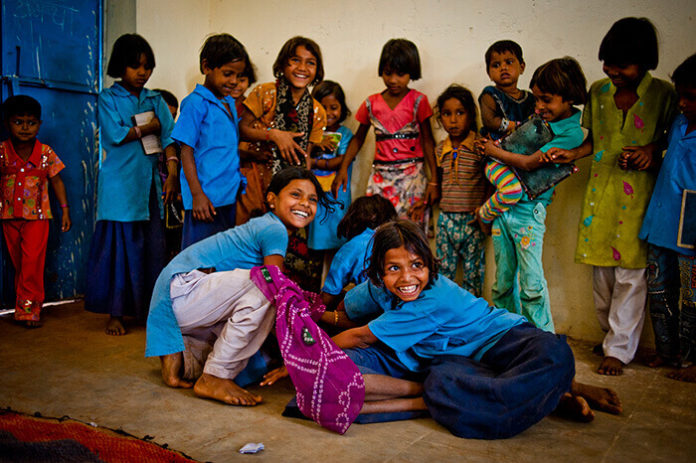New York (NVI): The United Nations Children’s Fund (UNICEF) plans to undertake a a global dialogue over the next 12 months with the participation of children and other stakeholders, particularly in 105 countries who have adopted the Convention on the Rights of the Child, to highlight issues concerning the little ones.
“UNICEF plans to undertake a global dialogue over the next 12 months with participation of children and young people, parents and caregivers, education and social workers, communities and governments, civil society, academia, the private sector and the media. I am confident that this dialogue will help influence the way we do business in future,” said a Statement by UNICEF Executive Director Henrietta Fore recently.
On the occasion of World Children’s Day on 20th November, the global community celebrated the 30th anniversary of the adoption of the Convention on the Rights of the Child. The occasion also saw the 105 nations who are signitories to the Convention on the Rights of the Child aligning to a global pledge promising to renew their commitment to children’s rights.
“At the United Nations Headquarters and in more than 50 countries, children and young people have been speaking out at national summits on issues that matter to them, like the climate crisis, safety in an online world, rising migration and lack of opportunities.
“Over the last 30 years, while millions of children have seen their lives improve, millions of others have continued to grapple with poverty, inequality, discrimination and conflicts. Worse still, the 21st century has brought forth new challenges that were unimaginable just a few generations ago,” Fore said.
“As childhood changes, we need to change our approaches along with it. That is why we are asking all Member States to renew their commitment to the Convention on the Rights of the Child and implement child rights fit for the 21st century. As the youth-led movements we are witnessing around the world clearly show, the world can no longer afford to ignore the voices of children and young people as they demand their rights and ask to be part of the solution,” the Unicef Executive Director added.
“The 105 States that have aligned to the Pledge so far are showing bold commitment and leadership. From the national pledge to end violence against children in Jamaica to the promise of a new maternal-newborn health policy in Bhutan, we are seeing serious political commitment to leaving no child behind,” she said.
Thirty years ago, world leaders made a historic commitment to the world’s children by adopting the United Nations Convention on the Rights of the Child – an international agreement on childhood. It’s become the most widely ratified human rights treaty in history and has helped transform children’s lives around the world.
UNICEF is mandated by the UN General Assembly to advocate for the protection of children’s rights, to help meet their basic needs and to expand their opportunities to reach their full potential. UNICEF is guided by the Convention on the Rights of the Child and strives to establish children’s rights as enduring ethical principles and international standards of behaviour towards children.









